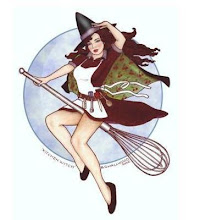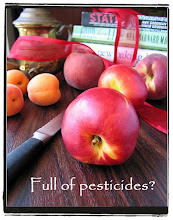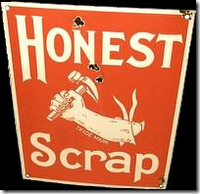Vegetarianism-is the practice of following a plant-based diet that includes fruits, vegetables, legumes, grains, nuts & seeds, and fungi. A vegetarian does not eat any kind of meat including beef, game, poultry, fish, crustacea & shellfish. A vegetarian may or may not include dairy and eggs in her/his diet.
Sounds like a pretty healthful diet, doesn't it? Well, it is if done properly. However, I am not here to simply argue the idea of 'Health & Wellness', nor am I here to convince anyone to be a vegetarian or a vegan. I also do not want to make anyone feel bad about their present choices. Instead, I am simply writing in defense of vegetarianism and calling out to all of you who have ever dissed it huffing and puffing about how you- 1. Just don't get it?!
2. Think it's not normal or how people were 'meant' to eat.
3. Believe it's not healthy for humans to not eat meat.
4. Haven't even thought much about it & are just annoyed by difference.
5. Feel something else...?
If you fit into any of these categories, I really hope you will continue reading. You can even argue with me in the comment area below, but please don't do so unless you actually read on and enjoy the next few topics as to why being a vegetarian is really such a very thoughtful, healthy, and rational way to eat for the following reasons!
A Love of Animals

Who out there has never loved an animal with a big part of your heart? Probably someone. I would wager though that most of you do understand the idea of love towards the animal kingdom. This is often due to some extremely adorable tail wagging by a loyal canine or maybe that independent purring puff ball that perches itself on the back of your sofa making your house look that much more inviting and wonderful. Yes, most of us do understand love beyond all things human.
However, we humans have a tendency to divide animals in our minds. I've noticed this at least. Some are for loving and having around our houses while others are meant to be a part of our dinner. Now, this last statement has its flaws. I know. For example, it's natural for most people to not want to snuggle with a snake or even have it for dinner. Animals have their differences, but please keep reading;)
Whether the aforementioned divide exists in your mind or not, I simply ask that you all contemplate the idea of someone who does love livestock or birds the way most of us love dogs and cats. In fact, I have an example. My mother loves cows. Her father had a small farm in her early childhood, and my young mother developed a love for the cows she saw born and reared. I remember going to the petting zoo at Stone Mountain in Atlanta, GA with my mother as a little girl. Her reaction to a young cow is still with me today, as she said 'just look at how sweet and adorable this baby is'. I looked down at the little cow noticing that it was indeed very cute. At the time though, I was taken aback at how my mother felt towards an animal that could be considered food.
Today, I'm different. I have little problem with the idea of loving an animal and, therefore, just not wanting to eat it. I love my dog, so I'm not eating him. I love cows, pigs, goats, sheep and deer too, so I'm not eating them either. It's really simply about love, Dearies, and I can't imagine why someone would be irritated about that?!
A Concern for The Earth

Did you know that livestock farms produce more harmful carbon gases than all of the cars across the earth on a yearly basis? It sounds unbelievable, but it's a fact. Indeed, The Food and Agriculture Organization of the United Nations (FAO) reported in 2006 that the raising and producing of cattle, hogs, poultry and other animals produces 18% of greenhouse gases yearly while cars produce 12%. More recent reports maintain these findings, and some believe it's getting worse year by year. I'm not going to cite this information, but I encourage you to 'Google' it if you have any doubts. Livestock farms are also a major cause of land and water degradation.
In light of the very serious and changing state of our own world and habitat, being a vegetarian or a vegan is quite an eco-friendly way to eat. In fact, it is an enormous contribution to the earth on the part of the individual who eats this way. Oh, and even non-vegetarians can be more earth friendly by simply cutting down on meat and animal products while buying the ones they do eat from small, organic farms!
A Nutritionally Superior Diet
Despite popular belief, human beings do not need meat to survive. The main components of meat nutritionally speaking are protein, saturated fat, cholesterol, and B Vitamins. The plant kingdom provides plenty of healthy fat options. In fact, plant based fats like avocado, nuts, and olive oil offer protein, fats, vitamins, and minerals while leaving artery clogging cholesterol to the wolves.
A legitimate health concern for vegans is B Vitamin deficiency. However, for vegetarians this is quickly solved due to the consumption of things like eggs, milk, cream, yogurt, and cheese. And even for vegans this problem can be solved by eating vegan foods that have some natural B Vitamins while supplementing in the form of taking a vitamin or eating fortified foods like soy milk, nutritional yeast, and fermented soy products.
I'm sticking to the idea of vegetarianism here though, and vegetarians get all the good stuff with less of the bad. Indeed, so many studies have been done showing that vegetarians live longer while also suffering from less heart disease, diabetes, and cancer. Just do a Google search on the benefits of eating vegetarian and you will find a plethora of legitimate studies showing that eating this way can benefit one's health and even the waist line...
I could go on and on here, Dearies. However, I have some gardening to do today, and I know you're busy too. I do hope that you will consider (if you don't already) vegetarianism and beyond as something that is simply 'good or maybe even nice' rather than 'annoying or weird' even if it is not what everyone decides to do in the realm of diet and lifestyle. And please do remember that there is such thing as being a 'responsible omnivore', which in my view is someone who eats less animal products while sourcing the ones they do eat from small, organic farms that are animal and eco-friendly.
Anyway, I will leave you with a quote I saw on
Namely Marly. Ms. Marly wrote a great post on
'How to Become a Vegetarian', and the quote she started with seemed to help me understand a bit better my own choice to be a vegetarian and part-time vegan. Here it is...















.jpg)

























.jpg)



